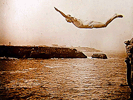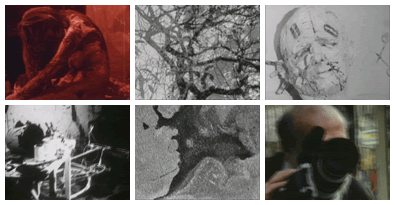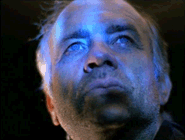One of the highlights from the Views of the Avant-Garde program was veteran experimental filmmaker, Ernie Gehr’s New York Lantern, a painterly, intuitive, and unexpectedly political three-part composition (as demarcated by three distinct musical scores) assembled from black and white and color tinted vintage photographs taken around New York City at the turn of the […]
Tag: Experimental Cinema
Program 8: Ernie Gehr
Precarious Garden, 2004 Loosely recalling the split-screened symmetry and bifurcation of unpopulated spaces in the epilogue of Jon Jost’s The Bed You Sleep In, Ernie Gehr expounds on the technique of split-screening through obstructed or otherwise baffled images that illustrate juxtaposed, partial and alternate views of the same mundane objects. Presented as a pure, soundless, […]
Le Révélateur, 1968
One of the experimental works created from the cadre of radical, emerging artists financed under the rubric of Zanzibar films that captured the spirit of May 68 and the counter culture revolution, Philippe Garrel’s silent film Le Révélateur is a fractured and elliptical, but instinctive, elemental, and haunting rumination on the process of awakening, maturation, […]
Program 9: Peter Kubelka’s Truth and Poetry
During Peter Kubelka’s engaging, humorous, and inspiring presentation (and screening of his latest film), he reinforced several concepts and overarching theories that have fueled his personal philosophy and his craft. The first is humankind’s primordial nature as hunter and gatherer, and that as a filmmaker, Kubelka adapts to this primitive instinct though his penchant for […]
Kurt Kren Retrospective
I have been wrestling this week with my ambivalent reaction towards the recent Kurt Kren and Viennese Actionist Film near-complete retrospective at the Anthology Film Archives which I found to be both enervating and exhilarating in equal measures. In retrospect, this inability to reconcile with the artist’s body of work seems to stem from Kren’s […]
The Assault of the Present on the Rest of Time (The Blind Director), 1985
Curiously opening near the end of the second act of Tosca as the heroine (Maria Slatinaru) fends off the advances of Scarpia (Günther Reich), the corrupt police commissioner, the unexpectedly abrupt, in medias res performance of the Puccini opera provides an incisive prelude to the elliptical structure of Alexander Kluge’s “anonymous city” symphony, The Assault […]





